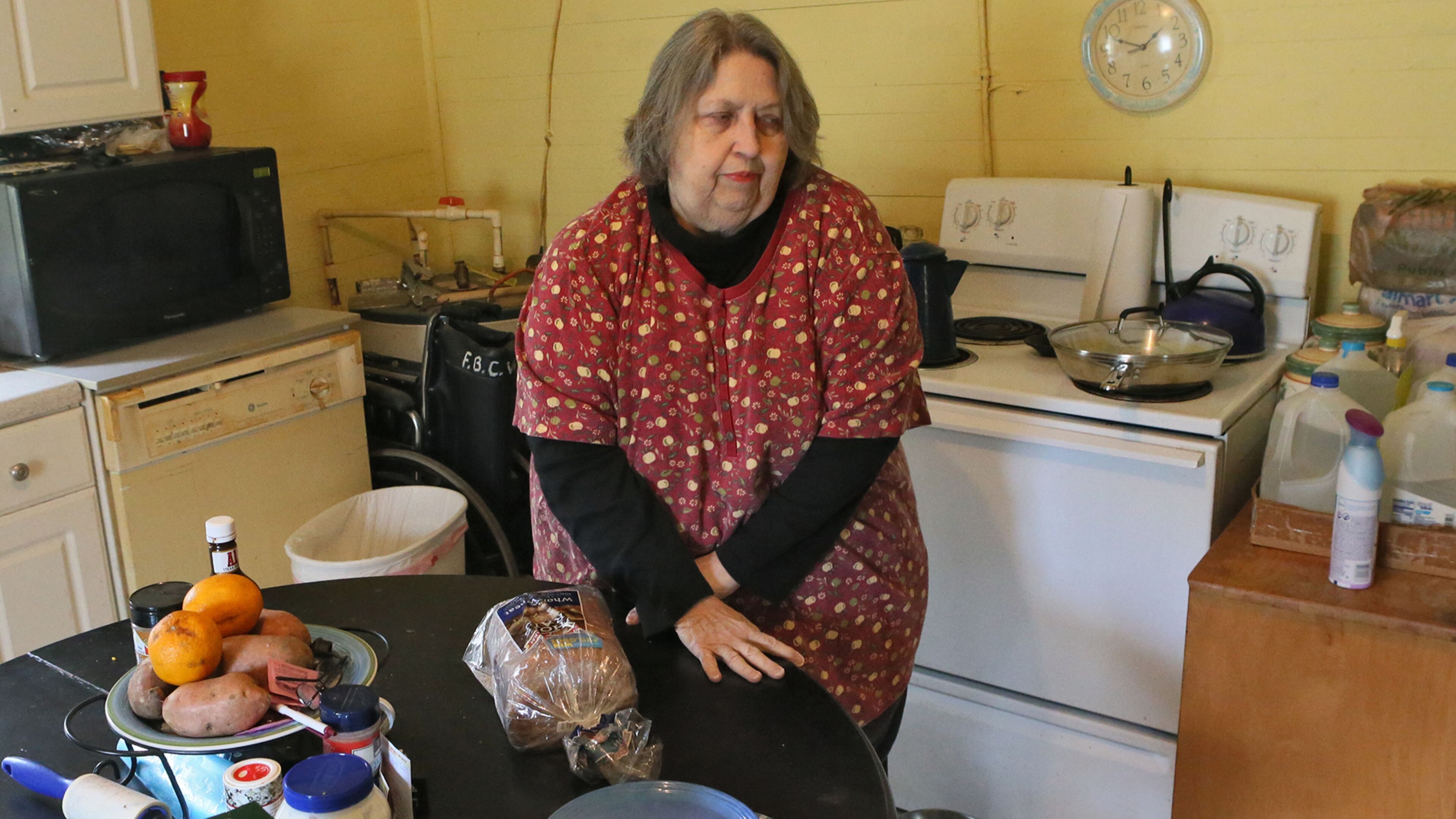State given 30 days to fix food stamp problems

Staff writer Greg Bluestein contributed to this article.
Federal officials have sharpened their threat to withhold millions of dollars from Georgia’s food stamp system, giving the state a 30-day deadline to show significant progress.
Should it fail to meet the May 14 deadline, Georgia could lose up to $15 million in administrative funds for the food assistance program that serves 1.7 million people, according to a warning letter from the federal Food and Nutrition Service this week.
Georgia food stamp officials have been scrambling for months to fix their problem-plagued system, which has prevented many Georgians from receiving assistance. The deepening federal threat came after Georgia failed to meet benchmarks set by the feds last month.
“This letter serves as a formal warning that (the state) may be subject to suspension of administrative funds,” FNS regional administrator Robin Bailey Jr. wrote to the state’s top food stamp official Monday.
Bailey acknowledged the state’s “significant steps” toward resolving the most glaring problem — a backlog of thousands of cases overdue for action. But even as the state eliminated most of the backlog, it has allowed new cases to stack up. Bailey said the state had 3,328 overdue cases as of April 8.
More than that, federal officials made clear that the state must take significant steps to correct core problems, brought on by inadequate staffing, a glitch-prone eligibility system and a call-in center that cannot handle all the calls coming in.
The state switched much of the food stamp process to a call-in center last year, but the move has failed miserably. Callers have been placed on hold for hours only to hear the line go dead. Food stamp recipients, who need to reapply every six months, have lost their benefits because they could not get through on the line.
Even as federal officials stepped closer to penalizing the state, they provided Georgia with a tool to help speed food stamps to the most needy Georgians. The feds granted the state a waiver that postpones the eligibility interview for people in the most dire need. The state would still need to verify a person’s identity and try to contact the person for an interview.
The federal government pays for food stamps but splits the administrative costs with the state. The Food and Nutrition Service had previously threatened to withdraw all of its $75 million contribution as early as May 1. But, recognizing the state has made progress, it reduced the penalty to a figure up to $15 million.
State officials put a positive face on Monday’s warning letter, emphasizing that the federal agency is working with the state to resolve issues.
“I don’t see it as a step into hot water, I see it as a step toward resolution,” said DHS Commissioner Keith Horton.
He stressed his agency’s success in reducing the number of backlogged cases and its plans to replace the inadequate call-in system and eligibility process.
Even after clearing the backlog, the state must demonstrate that it can process all applications and food stamp renewals on time. It doesn’t have to implement all the changes by May 14 but must convince the feds that it is committed to change.
Advocates saw the warning letter, a rare move by the feds, as a sign of increasing pressure on the state. They worry that the state’s effort to reduce the backlog — including an intense surge in employee overtime and the hiring of numerous temp workers — will not address the core problems.
“This is really crunch time,” said Nancy Rhinehart, an attorney with Atlanta Legal Aid. “The state has fixed much of the backlog, but they haven’t fixed the system.”
Gov. Nathan Deal is hoping to head off growing questions about the program as he faces a heated re-election contest.
“They’ve made huge progress in a very short period of time,” Deal said of the agency. “Once we get through that backlog, I think we’ll be in a better position to handle it in the future.”
His opponents, however, are already seeking to capitalize on the problems as evidence of a mismanaged state.
One Republican rival, former Dalton Mayor David Pennington, has said Deal’s push earlier this month to expedite the food stamp processing amounts to a “spend more tax dollars now; check the facts later” approach.
State Sen. Jason Carter, a Democrat running for governor, said through a spokesman Tuesday that Deal waited for a “full-blown crisis” until taking serious action.
“Families across Georgia were suffering long before Gov. Deal did anything to address the problems, and now taxpayers are on the hook for millions of dollars because he waited so long to act,” said the spokesman, Bryan Thomas.
Food stamp recipient Dionne Horn said she hopes the federal crackdown lights a fire under the state. But she worries that the loss of federal money could further damage the system.
Horn was thrown off the program in October after a notification glitch. The Covington mother, who helps care for the elderly and whose daughter has heart problems, struggled over three months before she regained her benefits.
“(Losing millions of dollars) will just make it worse,” said Horn, 45. “People will end up in the hospital, sick from starvation.”


